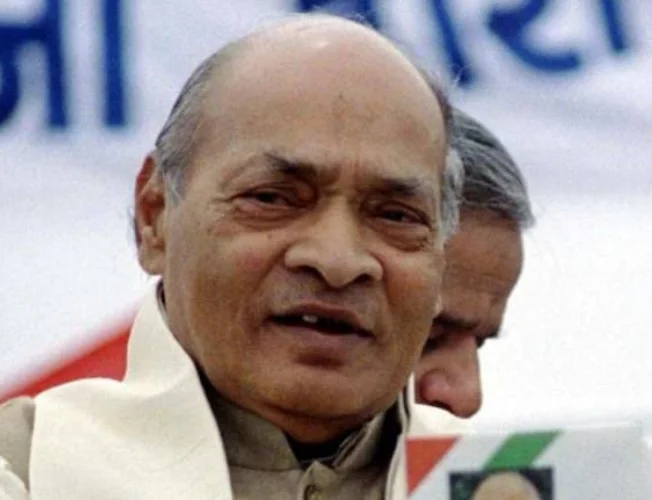P.V. Narasimha Rao, India’s 12th Prime Minister, is widely recognized for his bold economic reforms that ushered in a new era of liberalization and globalization for the nation. However, his contributions extend far beyond the economic realm, encompassing a significant recasting of India’s foreign policy.
Shifting Tides: The Need for Change
The collapse of the Soviet Union in 1991 marked a pivotal moment in international relations, dismantling the bipolar world order and ushering in a unipolar era dominated by the United States. This seismic shift had a profound impact on India, necessitating a recalibration of its foreign policy previously anchored in Nehruvian idealism and close ties with the Soviet Union.
A Pragmatic Approach: Embracing Multi-Alignment
Narasimha Rao, recognizing the changing global landscape, embarked on a strategic shift towards a multi-alignment approach. This involved forging closer ties with various nations, including the United States, Israel, South Korea, and ASEAN countries, while maintaining existing relationships. This pragmatic approach aimed to secure essential capital, technology, and strategic partnerships crucial for India’s economic development and security interests.
Economic Diplomacy in Action
Narasimha Rao understood the critical role of economic diplomacy in achieving India’s foreign policy objectives. He actively led from the front, undertaking visits to key economic powerhouses like Germany and South Korea. He addressed global gatherings like the World Economic Forum in Davos, directly engaging with investors and industry leaders. He also played a pivotal role in establishing India as a viable investment destination, particularly in Southeast Asia. His efforts paved the way for the influx of Korean companies like Samsung, LG, Kia, and Hyundai, now household names in India.
Looking East: Engaging ASEAN and Beyond
Narasimha Rao recognized the potential of the Association of Southeast Asian Nations (ASEAN) as a source of inspiration and potential investment. He actively engaged with ASEAN nations, intrigued by their model of “state-directed capitalism” that had fueled their economic progress. This engagement not only yielded economic benefits but also served strategic purposes, as exemplified by India’s revised policy towards Myanmar. While India previously supported Aung San Suu Kyi, Rao acknowledged the potential role of Myanmar in containing insurgency in India’s northeast, leading to India’s engagement with the then-military junta.
Integrating Foreign Policy with Economic Goals
Narasimha Rao recognized the inherent connection between foreign policy and economic development. He directed Indian diplomats to actively promote India’s economic reforms to the governments they were posted in, underlining India’s appeal as an investment destination. This approach mirrored the strategies employed by the current Modi government, highlighting a continuity in India’s diplomatic approach.
Building Bridges: Engaging the US and Israel
Narasimha Rao’s 1994 visit to the United States marked a significant shift in India-US relations. He recognized the importance of developing a positive equation with the US, the sole superpower in the unipolar world. However, he simultaneously emphasized that India’s core interests, such as non-proliferation, would not be compromised in this pursuit. His efforts aimed to establish economic, technological, and defense partnerships with the US, laying the groundwork for the robust strategic partnership that exists today.
Prior to his US visit, Narasimha Rao took a bold step by normalizing ties with Israel in 1992. This strategic move aimed to diversify India’s defense partnerships and gain access to new military technology, especially after the disintegration of the Soviet Union, India’s traditional supplier. Additionally, establishing ties with Israel, which enjoyed close relations with the US, served as a signal to Washington of India’s evolving strategic outlook.
Navigating Complexities: Countering Pakistan and Engaging with West Asia
Narasimha Rao, acutely aware of the complexities of West Asian politics, undertook a visit to Iran in 1993, just a year after establishing ties with Israel. This outreach aimed to counter Pakistan’s influence in the region, particularly concerning the Kashmir dispute. He also skillfully managed India’s relations with other regional players like China, striking a key agreement on border management in 1993 while acknowledging the need for peaceful coexistence despite current tensions.
Beyond Economic Reforms: A Legacy of Strategic Foresight
While Narasimha Rao’s economic reforms are undoubtedly his most celebrated legacy, his contributions to India’s foreign policy should not be overlooked. He steered India through a period of significant global change, adopting a pragmatic and multi-aligned approach that secured vital partnerships and paved the way for India’s rise on the world stage. His legacy reminds us of the crucial role of foreign policy in shaping a nation’s destiny and the importance of adapting to a continuously evolving global landscape.
Read more.. Marketing News, Advertising News, PR and Finance News, Digital News.





